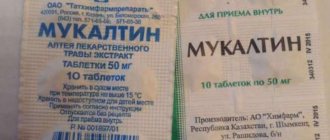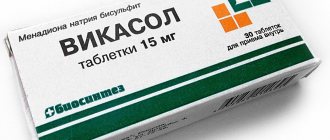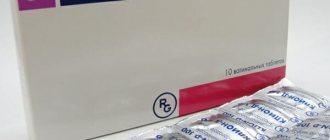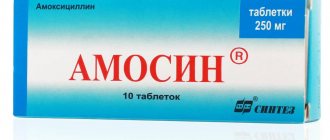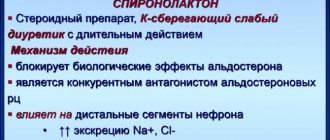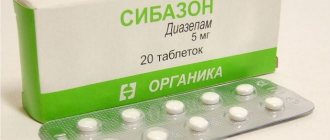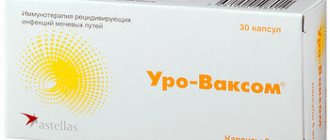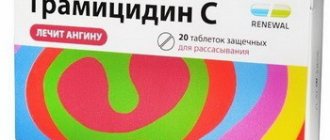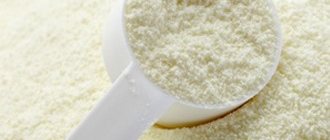Pharmacodynamics and pharmacokinetics
The active ingredient is acetylsalicylic acid . The mechanism of action is based on the possibility of inhibition of cyclooxygenase by the active component, which causes inhibition of the production of thromboxane A2 and a decrease in platelet cell aggregation. The antiplatelet effect achieved by taking one tablet lasts for a week.
High dosages of the drug can have analgesic and antipyretic effects (over 300 mg). The drug is completely absorbed in the digestive tract and is only partially metabolized during absorption.
Are there substitutes
Today, the drug "Acecardol" (100 mg), the instructions for which are described in this article, has a large number of substitutes. Analogues are those medications that contain similar active substances and also have a similar effect on the body.
The most popular analogues of the drug "Acecardol" are medications such as "Aspirin", "Thrombo ACC", "Acetylsalicylic acid" and many others. The active component of all the drugs listed above is acetylsalicylic acid, but it is contained in different dosages. Therefore, an experienced specialist will tell you which drug is suitable specifically for your case.
All these medications have the same contraindications, indications and side effects. Any of them should not be accepted by the children's category of the population.
During the course of treatment, it is very important to constantly monitor your health. For this purpose, you need to regularly take blood, stool and urine tests.
Based on the results of such examinations, we can conclude that further use of the medicine is advisable.
Let's take a closer look at each of the analogues.
Indications for use of Acecardol
What are the pills for?
Acecardol is prescribed for unstable angina, to prevent recurrent myocardial infarction, to prevent pulmonary embolism (including its branches) and deep vein thrombosis (during prolonged immobility, for example, during prolonged surgery).
The drug is prescribed to patients with risk factors (high body weight, high cholesterol, diabetes mellitus , smoking, age, arterial hypertension) to prevent acute myocardial infarction.
Instructions for use Acecardol recommends the medication for patients after invasive interventions and vascular operations (stenting, carotid angioplasty , carotid endarterectomy, coronary artery bypass grafting, arteriovenous bypass grafting) to prevent thromboembolism.
The drug is prescribed to patients with a transient disorder of the blood supply to the brain to prevent ischemic stroke.
How to prevent “bad” reactions?
Since Acecardol tablets are prescribed for a long time, when taking them you should follow the instructions for use exactly. This increases the likelihood of “not getting acquainted” with dangerous complications in the gastrointestinal tract and internal bleeding. Standard recommendations for taking this drug are as follows:
- drink strictly during or immediately after meals to reduce its aggressive effect on the gastrointestinal tract;
- Swallow the tablet whole, without chewing or breaking, so as not to damage the enteric coating;
- to reduce the irritating effect on the mucous membrane, it is better to drink Acecardol with milk (but plain water is also allowed) in an amount of at least 200 ml;
- as a preventive measure against heart attack, the drug is prescribed in a daily dosage of 100 mg (for patients with low weight) to 200 mg;
- to prevent recurrent infarction and treat ischemia - 300 mg 1-2 times. in a day;
- to prevent thromboembolism - 300 mg every other day or 100 mg once a day.
The doctor may additionally prescribe medications that reduce the secretion and production of gastric hydrochloric acid.
Contraindications
The medication is not prescribed to patients with erosive and ulcerative diseases of the digestive tract, hemorrhagic diathesis , bleeding from the stomach and duodenum. The drug is not prescribed for bronchial asthma caused by taking salicylates.
The drug is contraindicated for liver disease, heart failure , pathology of the renal system, and breastfeeding.
Simultaneous treatment with methotrexate at a dosage of more than 15 mg per week is unacceptable.
The use of Acecardol is limited in patients with hyperuricemia, gout, drug allergies, hay fever, and nasal polyposis.
Acetylsalicylic acid may cause bleeding during surgery.
Compound
As you age, your risk of developing cardiovascular disease increases. One of the key points is blood thickening. Everyone has heard the phrase: “After 40 years, everyone must take half a tablet of aspirin every day!”
To reduce blood viscosity and prevent cardiovascular diseases, attending physicians prescribe antiplatelet agents. The main component of such drugs is acetylsalicylic acid.
In this review we will compare two well-known products. German “Cardiomagnyl” and Russian “Acecardol”. They have a similar composition, so patients often have a fair question: which will better protect the heart and protect against vascular accidents
The active ingredient is acetylsalicylic acid. The composition includes the following additives that increase efficiency - corn starch, titanium dioxide, lactose, etc.
Side effects
Digestive tract: increased levels of ALT and AST enzymes, vomiting, heartburn , nausea, ulcerative lesions and bleeding.
Hematopoietic system: anemia , risk of bleeding due to inhibition of platelet cell aggregation.
Allergic responses in the form of cardiorespiratory distress syndrome, swelling of the mucous walls of the nasal cavity, rhinitis, urticaria, Quincke's edema, itching and rash. Rarely, a severe allergic reaction such as anaphylaxis .
Respiratory system: spasm of small and medium-caliber bronchi.
Nervous system: impaired auditory perception, tinnitus, headaches, dizziness.
Possible unwanted symptoms
Undesirable symptoms often occur precisely against the background of an overdose of acetylsalicylic acid. The most common signs:
- skin allergic reactions;
- disorders of the gastrointestinal tract;
- dyspnea;
- Quincke's edema is extremely rare. Only in cases of individual intolerance to the components of the drug;
- exacerbation of chronic diseases of internal organs;
- pathological change in blood characteristics.
The occurrence of such effects is an indication for seeking medical help.
Acecardol, instructions for use (Method and dosage)
It is recommended to take the medicine before meals. It is advisable to take the tablets with a sufficient volume of liquid. The drug is prescribed for a long time. Frequency of administration – 1 time per day.
If acute myocardial infarction is suspected, 100 mg daily or 300 mg every other day is prescribed for prevention. Chewing the tablet provides a faster effect, which is very important in the first hours of myocardial infarction. In the presence of several risk factors at once, for the prevention of a first-time acute myocardial infarction, 300 mg is prescribed every other day, or 100 mg daily.
Prevention of unstable angina, recurrent infarction, prevention of transient disturbance of cerebral blood supply, ischemic stroke : 100-300 mg every day.
To prevent pulmonary embolism and deep vein thrombosis, 300 mg every other day or 100 mg daily is prescribed.
Pharmacology
Pharmacokinetics is based on the main characteristics of the active substance - acetylsalicylic acid. The action of Acecardol is based on preventing the adhesion of platelet cells and reducing the amount of thromboxane A2 production. This effect is possible due to the inhibition of cyclooxygenase by acetylsalicylic acid.
The medicine has a long-term effect - the effect after taking even one tablet will last for 7 days.
At a dosage of 300 mg and above, the drug acquires a pronounced antipyretic and analgesic effect. Acecardole is absorbed directly from the digestive tract. Therefore, it is important to take the tablets whole so that the outer coating remains intact.
Overdose
Mild symptoms such as dizziness, nausea, headache, confusion, tinnitus, severe sweating, tachypnea, hyperventilation are possible. In this case, treatment will involve gastric lavage, large consumption of activated carbon, and restoration of water and electrolyte balance.
In case of severe overdose, the following are possible: very high body temperature, respiratory disorders, cardiovascular system, nervous system, glucose metabolism, bleeding in the stomach and intestinal tract. In this case, urgent hospitalization is necessary.
International nonproprietary name
INN of the drug: acetylsalicylic acid.
ATX code: B01AC06
The medicine is released only in tablet form.
Pills
The tablets are coated with a special protective coating, which dissolves well in the intestines. One tablet may contain 50, 100 or 300 mg of acetylsalicylic acid.
https://www.youtube.com/watch?v=AzQja6uRUNk
Additional components: povidone, starch, some lactose, cellulose, magnesium stearate, talc, a small amount of titanium dioxide and pure castor oil.
The tablets are round, white, coated with a white coating. Packed in special blisters of 10 pieces each. The package contains from 1 to 5 such blisters and instructions.
Not available in drop form.
Powder
The product is not available in powder form.
Acecardol 100 is used for the treatment and prevention of many diseases of the cardiovascular system.
Solution
The medicine is not released in the form of a solution.
Interaction
Acecardol can enhance the effect of heparin , methotrexate , indirect anticoagulants (due to a functional disorder in platelets), antiplatelet agents and thrombolytic medications, digoxin (due to a decrease in its excretion by the renal system), hypoglycemic agents, valproic acid (the mechanism is based on its displacement from connection with plasma proteins).
The risk of bleeding increases with the use of antiplatelet agents, thrombolytics and anticoagulants.
There is an increase in the toxic effect of ethanol on the functioning of the brain and nervous system with simultaneous consumption of alcohol.
Acecardol can weaken the effect of benzbromarin and other uricosuric medications (the mechanism is based on a competitive reduction in renal excretion of uric acid in the tubules), diuretics (due to a decrease in filtration rate at the glomerular level), and ACE inhibitors.
Systemic glucocorticosteroids weaken the effect of Acecardol by enhancing the elimination of salicylates.
special instructions
Acecardol can provoke bronchospasm and attacks of bronchial asthma. Risk factors: history of nasal polyposis, hay fever , drug allergies, bronchial asthma.
The achieved effect of inhibiting platelet aggregation persists for several days, which can cause bleeding during emergency surgical interventions. Before planned operations, the medication is discontinued at least 7 days in advance.
In predisposed patients, Acecardol in small dosages can cause gout. uric acid excretion are at risk .
As the dose of the drug increases, the risk of bleeding in the digestive tract increases significantly.
Acecardol does not affect the ability to drive a car. When treating with glucocorticosteroids, it is necessary to take into account that when they are discontinued, an overdose of salicylates is possible.
Acecardol's analogs
Level 4 ATC code matches:
Persantine
Aegitromb
Plavix
Coplavix
Chime
Cardiomagnyl
Polocard
Thrombo ACC
Brilinta
Magnicor
Plagril
Dipyridamole
Clopidogrel
Lopirel
Sylt
Cardiask
Aspirin Cardio
Aspinat
Aspicor
Analogs include the following drugs: ThromboASS , Cardiomagnyl , Aspinat , Acenterin , Aspirin .
